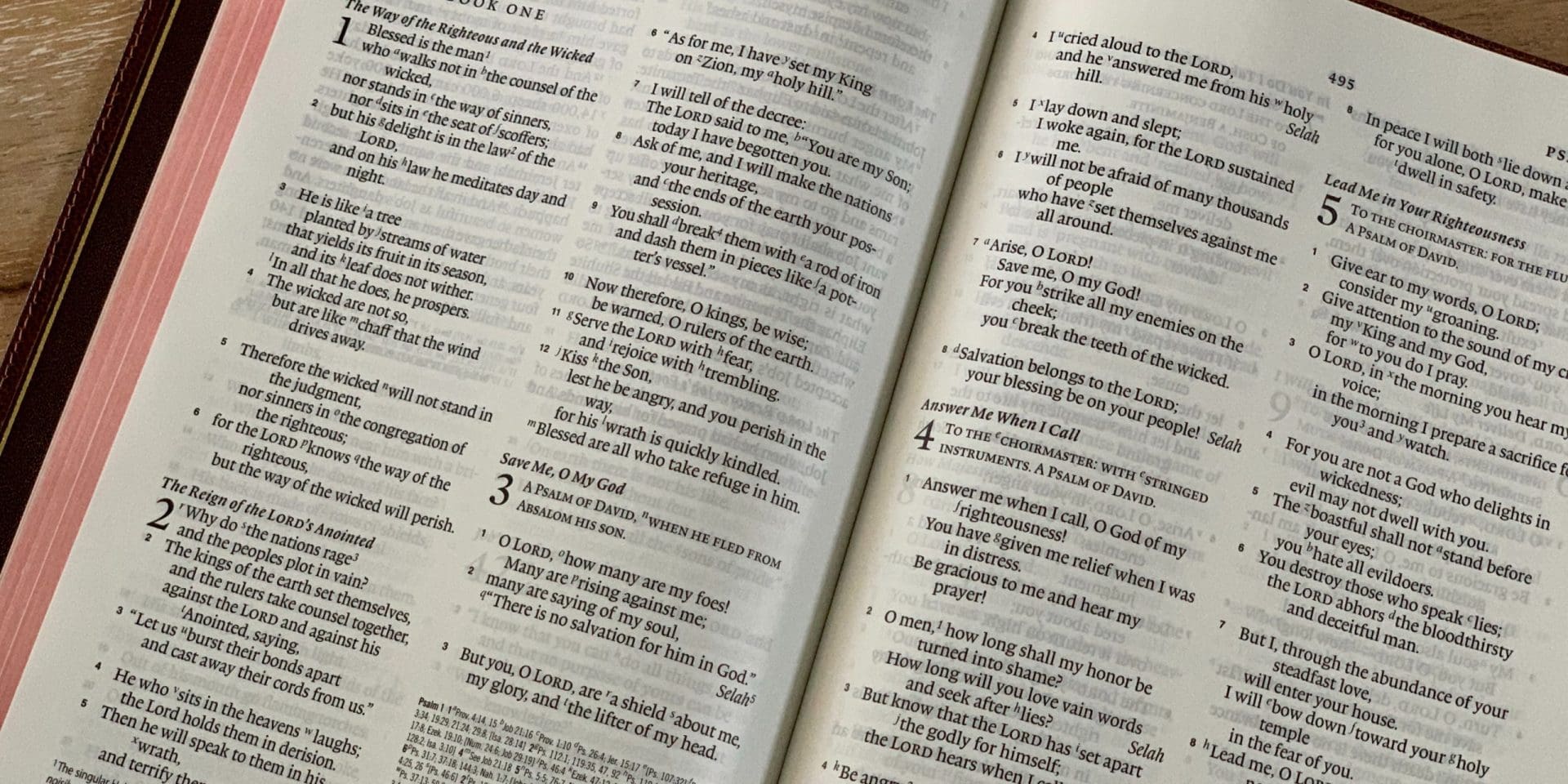The book of Psalms, known also as the hymnbook of Israel, is a true masterpiece orchestrated by the Holy Spirit Himself. And though poetic in form, it speaks just as clearly about the Messiah as the other Old Testament books do and it does so with great frequency. Notably, Jewish believer Arnold Fruchtenbaum summarizes the Psalms as “poetic versions of the messages of the Law and the Prophets…The whole Book of Psalms is full of profound doctrine and deep spiritual truths couched in poetic terms.”[1]
Regarding the promised Saviour, the Psalmist wastes little time as Messianic prophecies begin as early as Psalm 2 and progress to reveal the entire Messianic program including His First Coming, the interval, the Second Coming, and the coming Messianic Kingdom. As a few examples consider Psalms 16 and 22 which both teach that the Messiah would die and rise again.
In Psalm 16:10-11 David foresees the Messiah’s death and resurrection when he declares: “For You [God] will not leave my soul in Sheol, nor will You allow Your Holy One to see corruption. You will show me the path of life.” Clearly, for one’s soul not to be left in Sheol (i.e., the realm of the dead) it must first go there through death. And, as the apostles Peter and Paul confirm in the book of Acts (2:24-28; 13:35), this passage cannot be about David since he died and saw corruption. While the Messiah would also die, He would “see no corruption” because God would raise Him up.
Likewise, Psalm 22 also teaches of the death and resurrection of the Christ. As a matter of fact, it gives such great detail (more than twenty specific details) regarding the terrible sufferings the Messiah would face that it could rightly be called the poetic version of Isaiah 53.[2] And the second part of this Psalm (v. 22-31) exalts the Messiah and speaks of the future establishment of His kingdom. This, of course, presupposes the Resurrection. Psalm 2 also speaks of Messiah’s coming kingdom foreseeing His rule over all the nations with a “rod of iron.” Psalm 80 centers around Israel during the interval period (note that the “Son” in verse 15 is at the “right hand” of God in verse 17 having already been “raised up”) and ends with the anticipation of the Second Coming and the national salvation of Israel. And Psalm 110, though only seven verses long, prophesies of the entire Messianic sequence.[3]
Of course, the question at large is, just who is this Messiah? Significantly, there’s only one person in all of human history to whom all of these details can be ascribed. And that is none other than Jesus of Nazareth. While many vehemently reject this very obvious conclusion and therefore offer up other inadequate alternatives[4] the fact remains that there are hundreds of these prophecies in the Old Testament that were fulfilled in Jesus and only Jesus. As a matter of fact, according to one list the Psalms alone contain 92 prophecies that were fulfilled in His First Coming,[5] and many of them were beyond His control.
For example, Psalm 72:10-11 prophesied that He would be presented with gifts at his birth (fulfillment Matthew 2:1-12). Psalm 41:9 said that He would be betrayed by a friend who would eat with Him (fulfillment Matthew 26:20-25, 47-49; Mark 14:18-20, 43-46; Luke 22:21-23, 47-48; John 13:18-30, 18:1-5). Psalm 22:16 said that His hands and His feet would be pierced (fulfillment Matthew 27:32-35; Mark 15:21-25; Luke 23:33; John 19:17-18). Psalm 22:18 predicted that His clothing would be divided among His persecutors and that they would cast lots for His robe (fulfillment Matthew 27:35; Mark 15:24; Luke 23:24; John 19:23-24). Psalm 34:20 prophesied that none of His bones would be broken during His execution (fulfillment John 19:32-33). And the list goes on.[6] Indeed, there are so many specific prophecies that were fulfilled in Jesus that (as the 18th century English theologian John Gill put it) they “cannot with any tolerable colour or pretence be applied to any other.”[7],[8] As Jesus Himself said in Luke 24:44, “This is what I told you while I was still with you: Everything must be fulfilled that is written about me in the Law of Moses, the Prophets and the Psalms.”

Ryan Hembree is a daily co-host, speaker, and writer of Bible Discovery. He also hosts a YouTube channel that shows the unity of the Bible and how science and Scripture fit together. Ryan also has an honorary Masters of Ministry in Creation Science from Phoenix University of Theology.
[1] Arnold G. Fruchtenbaum, Messianic Christology, P.80.
[2] Believe it or not, there are more details in these two chapters regarding Jesus’ crucifixion than in the New Testament!
[3] For an excellent study on Messianic prophecies in the Psalms and the rest of the Old Testament see Arnold G. Fruchtenbaum, Messianic Christology.
[4] Jews who reject Jesus as their Messiah claim that these prophecies aren’t referring to Jesus but rather to the nation of Israel. And Bible skeptics who have a bias against anything supernatural might claim that these prophecies about Jesus were written after the fact or that Jesus fulfilled them by chance. While this is beyond the scope of this brief article, it is important to realize that all of these alternatives fail miserably.
[5] Mark Water, AMG’s Encyclopedia of Jesus’ Life and Time, P.77-81.
[6] Remember that I’ve limited this list to the Psalms. But there are many more prophecies in the Old Testament which Jesus would have had no control over.
[7] John Gill, AMG’s Encyclopedia of Jesus’ Life and Time, P.69 Complied by Mark Water.
[8] While John Gill was speaking specifically of Psalm 22 and Isaiah 53, his statement naturally extends to all the other Messianic prophecies as well.






